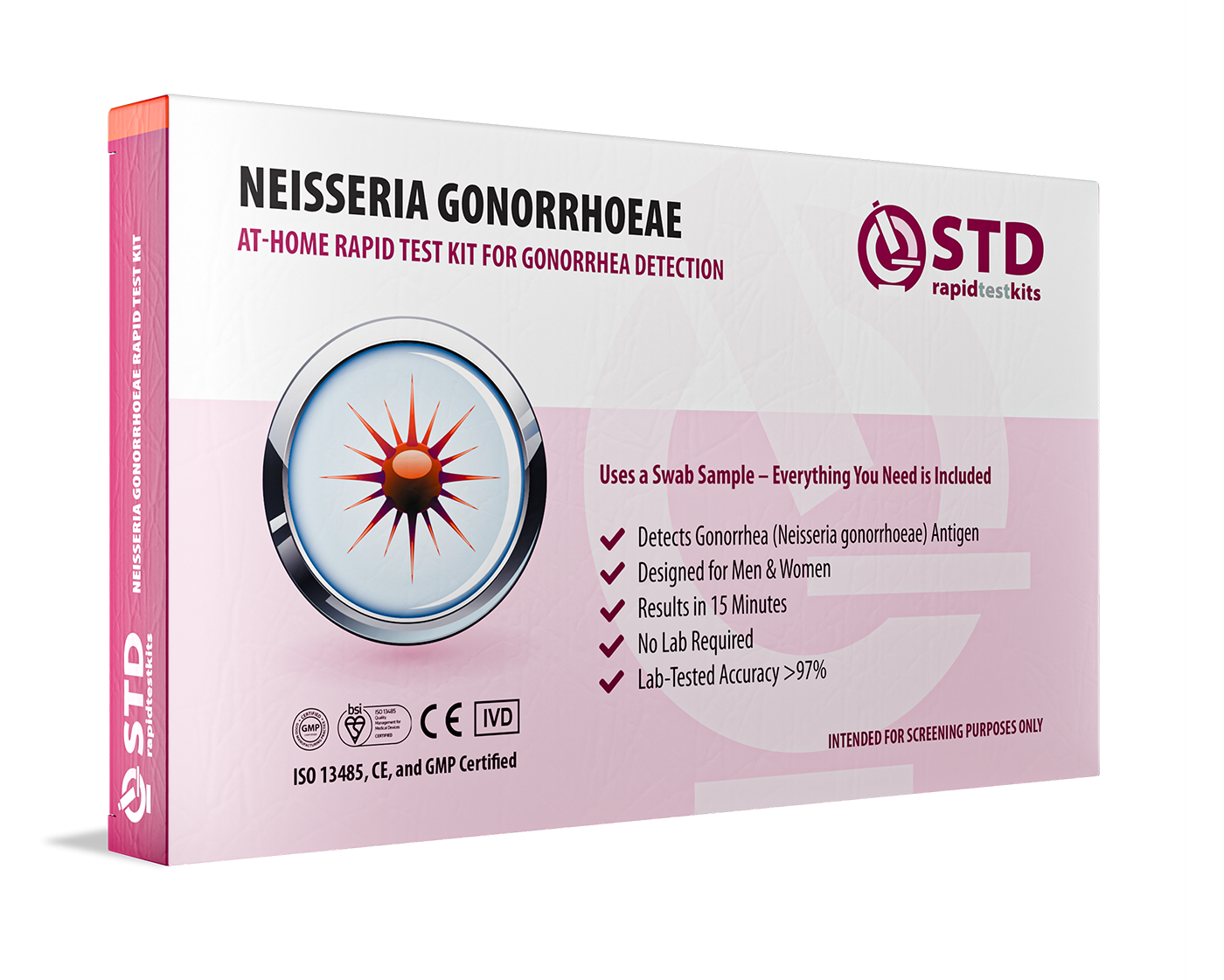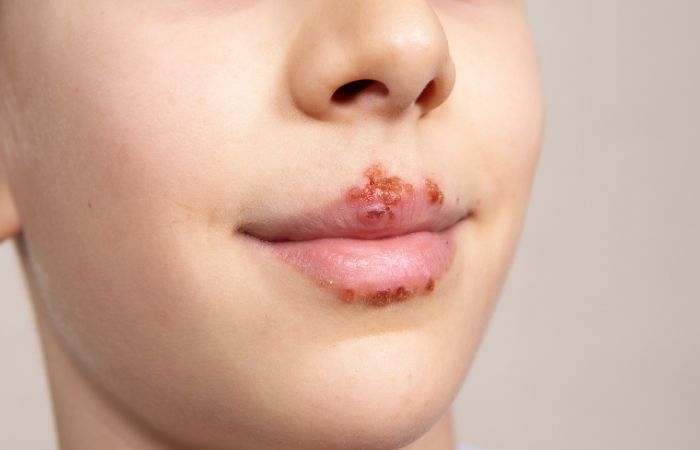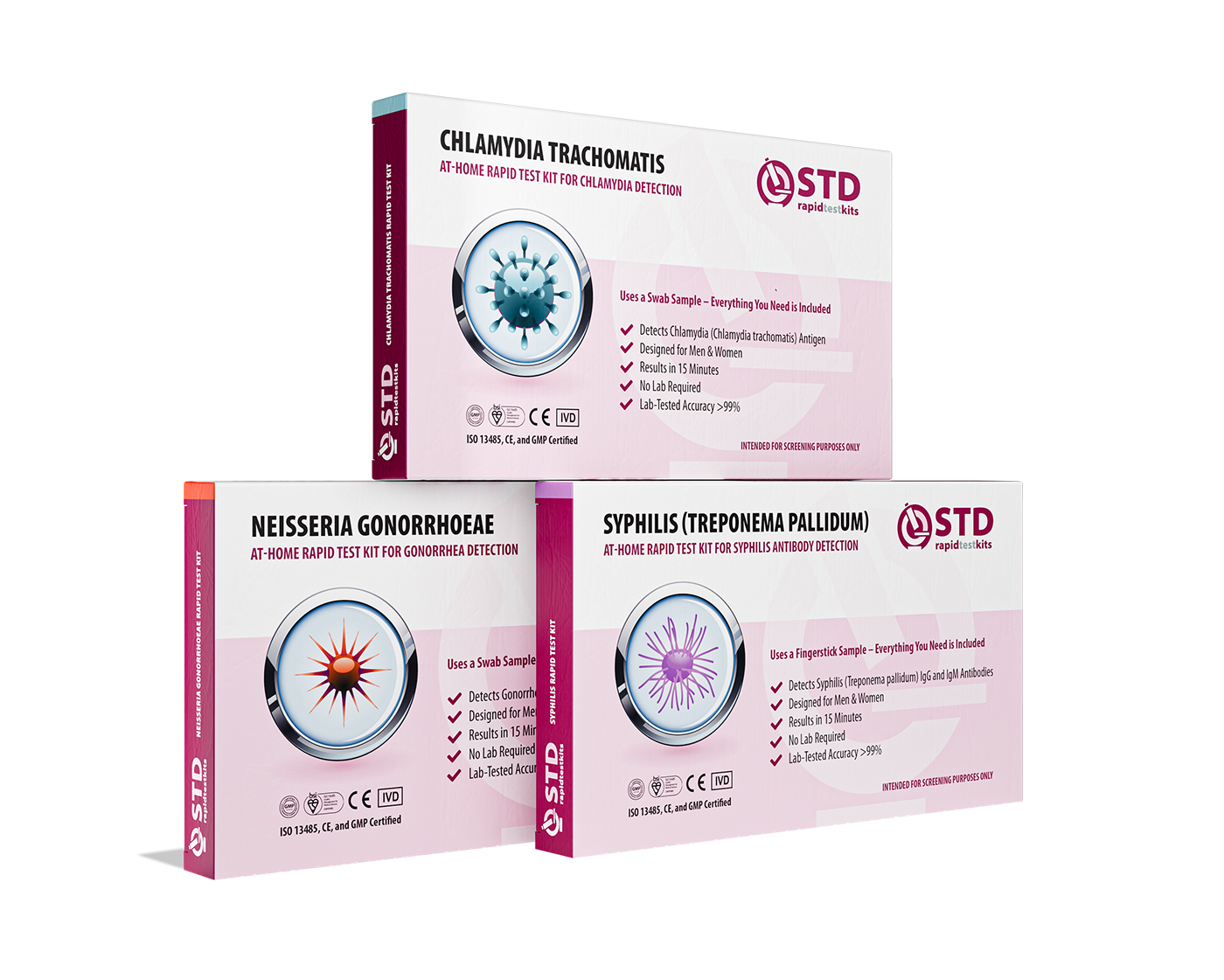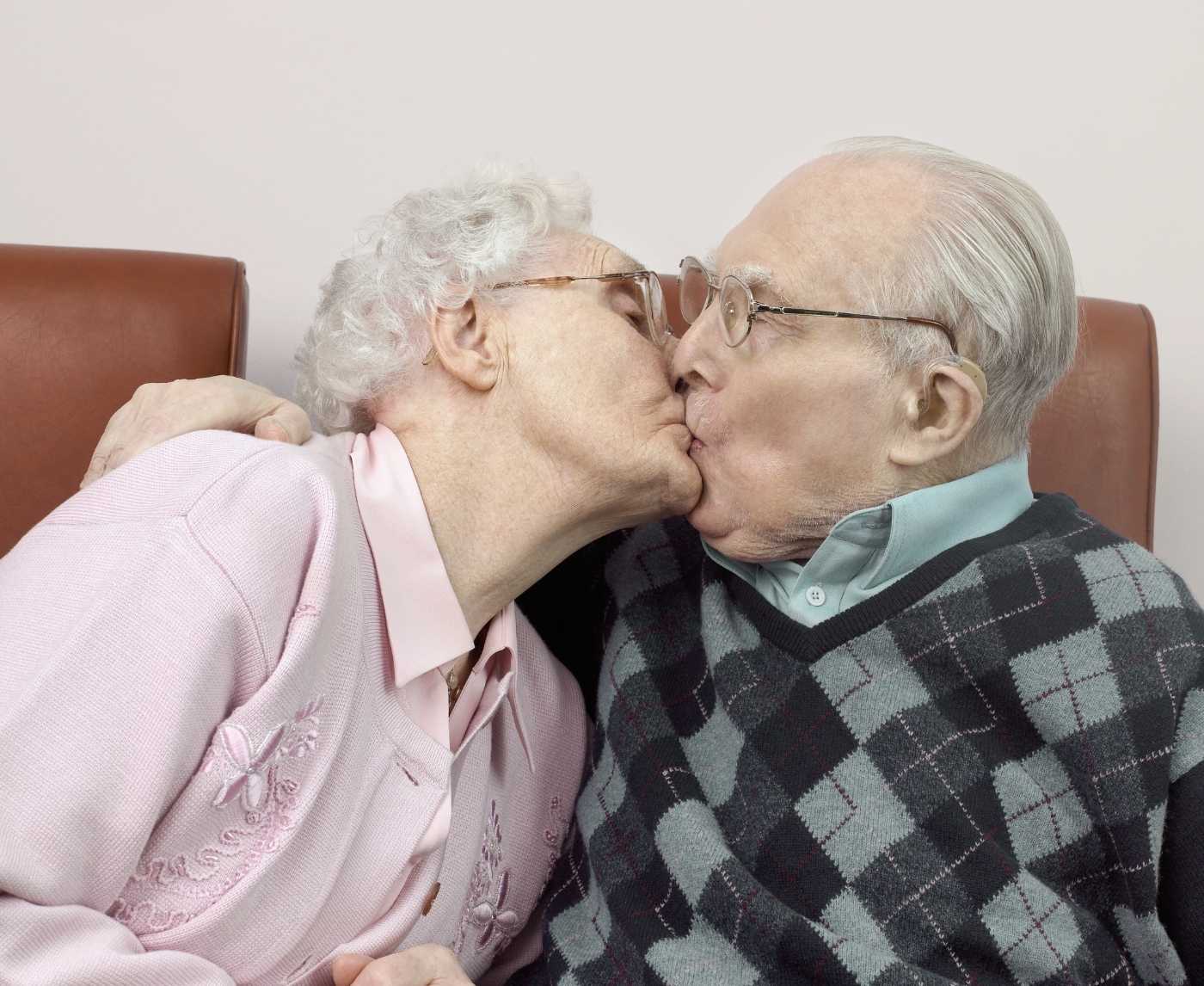Let’s get one thing straight: kissing isn’t just innocent foreplay. It can be a hotbed, literally, for certain sexually transmitted infections (STIs). One of the sneakiest? Oral gonorrhea. If you’ve ever wondered whether a deep, passionate kiss could leave you with more than just butterflies, you're not alone, and you're asking the right questions.
This isn’t about scaring anyone off intimacy. It’s about pulling back the covers (sometimes literally) on how STDs like gonorrhea actually spread, especially through less obvious routes like kissing. We'll also explore other kissing-transmitted infections like Herpes, Syphilis, HPV, CMV, and mono, because knowledge is sexy, and health is hot.

People are also reading: Oral Sex, Real Talk: The Mouth-to-Genitals STD Playbook Nobody Gave You
What Is Oral Gonorrhea?
Oral gonorrhea is a sexually transmitted infection caused by the bacteria Neisseria gonorrhoeae living in the throat and mouth. It’s usually picked up through oral sex, but recent studies show kissing can spread it too, especially among people with untreated infections in their tonsils, gums, or saliva.
- Location: Usually settles in the throat or tonsils
- Symptoms: Often none, but can include sore throat, red/swollen tonsils, bad breath, or mild fever
- Risks: Can go undetected for months, making it easy to spread
According to a 2019 study published in Sexually Transmitted Infections, kissing can transmit oral gonorrhea, particularly in communities with high partner turnover or existing oral STIs. This is especially relevant for men who have sex with men (MSM), but applies to anyone with frequent deep-kissing encounters.
How Common Is Gonorrhea Transmission Through Kissing?
It’s not as common as genital transmission, but it’s not negligible either. Studies from Australia and Japan found that deep kissing can be a significant route of transmission, especially when partners already carry oral STDs or engage in frequent unprotected oral sex.
The throat acts as a “silent reservoir,” meaning people often carry and spread the infection without knowing it. That’s why many public health experts now recommend including throat swabs in routine STD testing.
Symptoms of Oral Gonorrhea: What It Feels Like (If Anything)
Most people don’t feel a thing. But for the few who do, symptoms of oral gonorrhea can look and feel like a mild throat infection, just enough to ignore or blame on allergies.
- Sore Throat: Persistent, sometimes with white patches on tonsils
- Swollen Lymph Nodes: Especially in the neck
- Bad Breath: A sign of bacterial overgrowth
- Fever or Fatigue: Rare, but possible
Because symptoms are so mild, or nonexistent, many people only find out they had oral gonorrhea after testing. That’s why routine throat testing is a game changer, especially for folks with active dating lives or frequent oral sex.
Check Your STD Status in Minutes
Test at Home with RemediumGonorrhea Test Kit

 For Men & Women
For Men & Women Results in Minutes
Results in Minutes No Lab Needed
No Lab Needed Private & Discreet
Private & DiscreetOrder Now $33.99 $49.00
Other STDs You Can Get from Kissing
Gonorrhea isn’t the only infection that hitchhikes on a kiss. Here are other STDs and infections known to transmit through saliva:
- Herpes Simplex Virus Type 1 (HSV-1): The classic cold sore virus, highly contagious via kissing
- Syphilis: Can cause open sores in the mouth that make kissing risky
- Cytomegalovirus (CMV): A herpes-family virus spread by saliva, often harmless but risky during pregnancy
- Mononucleosis: AKA “the kissing disease,” caused by the Epstein-Barr virus
- Human Papillomavirus (HPV): Can affect the mouth and throat, and may be linked to oral cancers
While not all of these are officially “STDs,” they are sexually transmittable, and kissing is one way they get passed around. If your mouth’s involved in your sex life, it deserves the same level of care and testing as any other body part.
The Myth of “Safe Kissing”
Many people assume kissing is safe by default. And emotionally? That makes sense. We don’t want to turn every romantic moment into a risk assessment. But physically? It’s a little more complicated.
While your chances of getting gonorrhea from a single kiss are low, risk builds with frequency, partners, and presence of other infections. Think of it like driving: most trips are safe, but you still wear a seatbelt. Testing is your seatbelt.
Historical Blind Spots: Why We Ignored Oral Gonorrhea
For decades, sexual health focused almost entirely on genitals, what we touch, insert, or protect. But kissing? It got a pass. The medical world long assumed it was too low-risk to bother, and public education followed suit.
Only recently have researchers turned their microscopes toward the mouth. A 2020 meta-analysis in Clinical Infectious Diseases revealed a consistent pattern: oral gonorrhea is more prevalent than previously recognized, and kissing may be a key vector.
In hindsight, it makes sense. Saliva carries bacteria. The mouth has mucous membranes. Add an open sore, gum disease, or untreated infection, and you've got a microbial cocktail worth respecting.

People are also reading: Unprotected Sex? Here's When to Get Tested for STDs
Expert Opinions: What Doctors Say About Gonorrhea and Kissing
According to the CDC, gonorrhea primarily spreads through sexual contact, but experts now acknowledge that kissing, especially with tongue, can contribute to transmission in high-risk populations.
Dr. Marcus Chen, a sexual health researcher in Australia, has led several studies showing that kissing plays a larger role in STI transmission than we thought.
“If we're only screening genitals, we're missing a huge part of the picture,” he said in a 2022 interview.
In other words: if the infection lives in the throat, and the throat never gets tested, you can keep spreading it no matter how often you pee clean.
Hard Numbers: What the Research Says
Let’s look at the data:
- 2019 study in Australia: Found throat-only gonorrhea in 6% of participants who had no genital or rectal infection.
- 2021 CDC report: Showed rising gonorrhea rates, with many cases likely undiagnosed in the throat.
- Meta-analysis (2022): Showed that people with more than five deep-kissing partners in 6 months were significantly more likely to carry oral STDs.
The takeaway? Silent throat infections are keeping gonorrhea in circulation, especially when people aren’t aware they can test for it at home with tools like the Multi-STD Essential Kit.
Misconceptions That Keep You at Risk
Let’s bust a few myths that are still floating around:
- “If I don’t have symptoms, I’m fine.” Over 90% of oral gonorrhea cases are asymptomatic.
- “You can’t get an STD from kissing.” False, herpes, syphilis, and gonorrhea all say otherwise.
- “Mouthwash kills the bacteria.” Nice try. While it may reduce bacterial load temporarily, it won’t prevent or cure an STD.
If you’ve been operating under these myths, you’re not alone. The good news? You can take back control with better knowledge and discreet testing options.
Preventing Kissing-Related Infections: What Actually Works
Let’s be real, you’re not going to stop kissing. Nor should you have to. But just like sex, kissing can be made safer with a few smart practices:
- Get tested regularly: Especially if you're sexually active with multiple partners
- Include throat swabs: Ask for them specifically, or use at-home kits that include oral testing
- Avoid kissing when sick: Colds, fevers, or open sores? Wait it out
- Be open with partners: Share status and symptoms without shame
If you’ve been kissing a lot and wondering whether you might be carrying something, consider testing, especially if you haven’t tested your throat before.
Check Your STD Status in Minutes
Test at Home with Remedium3-in-1 STD Test Kit

 For Men & Women
For Men & Women Results in Minutes
Results in Minutes No Lab Needed
No Lab Needed Private & Discreet
Private & DiscreetOrder Now $69.00 $147.00
For all 3 tests
Real Stories: What It Feels Like to Have Oral Gonorrhea
“I thought it was just strep,” said Jessie, a 28-year-old who tested positive for oral gonorrhea after two months of scratchy throat and low-grade fever. “I’d hooked up with someone new, but it was just oral, no sex. I didn’t even think to test for STDs.”
Michael, 35, found out during a routine panel. “I didn’t have a single symptom,” he said. “When they said I had gonorrhea in my throat, I was floored. I hadn’t even had sex in weeks, just some make-outs at a party.”
These stories aren’t outliers, they’re examples of how easily oral gonorrhea slips under the radar. That’s why at-home kits with throat swabs are game-changers for anyone kissing and connecting in 2025.
FAQs
1. Can you get gonorrhea from kissing with tongue?
Yes, especially if one person has oral gonorrhea. Deep kissing increases exposure to saliva and mucous membranes.
2. Is oral gonorrhea dangerous?
It’s rarely dangerous on its own but can contribute to antibiotic resistance and other complications if left untreated.
3. What are the signs of throat gonorrhea?
Most people have no symptoms. Some might notice a sore throat, red tonsils, or mild swelling.
4. How is oral gonorrhea treated?
With antibiotics, usually a single-dose injection plus oral meds. Always follow up with a test-of-cure.
5. Do condoms prevent oral gonorrhea?
They help during oral sex but don’t prevent transmission from kissing or saliva exchange.
6. How long can oral gonorrhea last untreated?
Weeks to months. The longer it lingers, the more likely it is to spread or develop resistance.
7. Can mouthwash prevent oral gonorrhea?
Not reliably. Some studies suggest it may reduce bacteria briefly, but it’s not a substitute for protection or testing.
8. Should I get tested if I’ve kissed someone with an STD?
Yes, especially if they had symptoms or you’ve had multiple partners.
9. Can gonorrhea live in saliva?
Yes. Saliva from an infected throat can carry the bacteria, which may transmit through deep kissing.
10. Can I test for throat gonorrhea at home?
Yes, using a home kit from our STD Combo Home Test Kits.
It’s Just a Kiss, Until It Isn’t
Kissing is a beautiful, intimate act. But like anything involving human bodies, it carries complexity, and sometimes risk. Gonorrhea from kissing isn’t an urban myth. It’s a medically confirmed reality that deserves attention, not shame.
If you’re sexually active, kissing multiple partners, or engaging in oral sex, it’s time to start treating your throat with the same concern as your genitals. And the good news? That doesn’t mean panic. It means empowerment.
Because a little peace of mind goes a long way, and you deserve that, no matter who you’re kissing.
Sources
2. Transmission of Neisseria gonorrhoeae by Kissing










